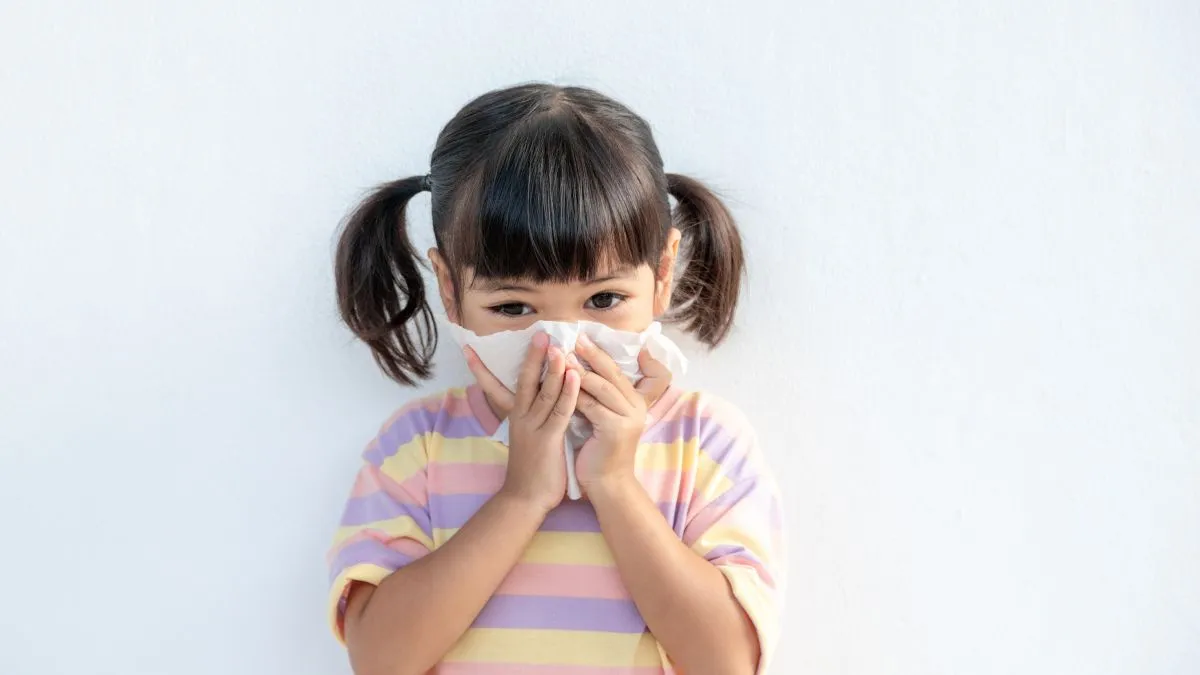- By Iram Hussain
- Wed, 16 Jul 2025 05:52 PM (IST)
- Source:JND
While the monsoon season brings relief from the summer's oppressive heat, it also carries the risk of a plethora of infections, the majority of which are viral in nature and affect kids. Every year, many childhood illnesses including fever, cold, flu, diarrhoea and skin diseases are brought to clinics during the monsoon season. There is no doubt about this trend. Because children, especially those under ten are more susceptible to monsoon-season illnesses than adults (or older children) and have a range of physiological and developmental problems related to the monsoon season.
In a conversation with The Daily Jagran, Dr. Mubashshir Khan, Consultant - Neonatology, Manipal Hospital, Baner, Pune explained why children fall sick first during monsoon and how they can be protected.
Why Kids Fall Sick During Monsoon?
First, children's immune systems are still maturing, making them less capable of handling bacterial and viral infections. Once more, during the monsoon season, children's systems are subjected to a variety of additional stressors. For example, contaminated or dangerous drinking water, altered temperature patterns and the presence of uncaring parents and their children in schools or childcare can all expose children to several health problems. Adding to this, youngsters unintentionally or purposely contact a variety of surfaces without understanding if they have been cleaned or contaminated. They then carelessly touch their lips or face, giving germs from the surfaces access to their immune systems.
ALSO READ: Red Eyes In Rain: How Monsoon Triggers Eye Infections And What To Do? Doctor Insights
During this time of year, the most common health problems are gastroenteritis, ear, throat and viral fevers as well as mosquito-borne illnesses like malaria and dengue. Children who are outside in the rain or who have worn wet shoes for extended periods of time are also at risk for skin infections from wet and damp clothing and damp skin from fungal growth.
How To Safeguard The Health Of Kids?
Building exterior immunity through hygiene and internal immunity through diet are the first steps in prevention. Increasing natural defences requires a diet rich in vitamins, minerals and especially zinc and vitamin C. Simple practices that are consistently performed in this area such as washing the hands with soap, dry clothes, drinking clean water and avoiding street food will significantly help safeguard kids during this time of season.
Patients will recover faster if infections are detected early. Paediatricians usually advise supportive care, administer some paracetamol or ibuprofen for the fever and make sure the patient is properly hydrated for common fevers and respiratory ailments. The presence of a bacterial infection and the need for antibiotics can be verified by a clinical evaluation. It is important to remember that oral rehydration solutions are necessary in cases of acute gastroenteritis which should never cause dehydration.
